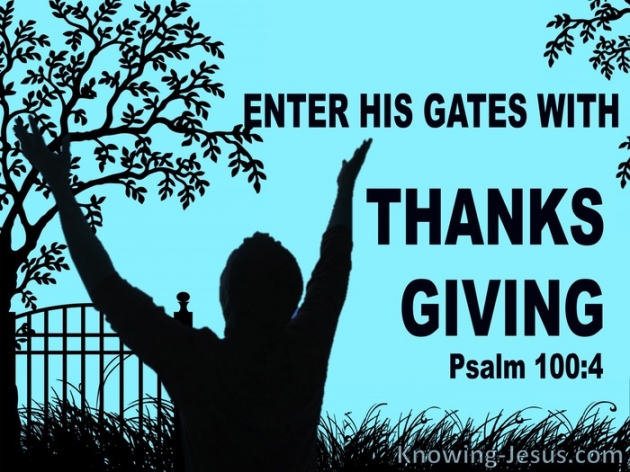Details
Topics
Rule In The Midst Of Your Enemies (Ps 110: 1-2)

“Sit at my right hand, until I make your enemies a footstool for your feet” (Psalms 110:1 NIV). This is the most oft-quoted Old Testament verse in the New Testament. But as we consider now what right-hand-of-God power might look like practically in our lives, I want us to pay particular attention to the verse that immediately follows: “The Lord will extend your mighty scepter from Zion, saying, ‘Rule in the midst of your enemies!’” (Psalm 110:2 NIV).
Notice, however, it’s not a promise that the Lord will get rid of our enemies. Instead, God wants us to rule in their midst. This is not a rose-garden promise to remove our enemies, but an invitation to rule in the midst of them. As David expressed it in Ps 23:5 “You prepare a table before me in the presence of my enemies”. Though we have enemies, we can rule in the midst of them and be “more than conquerors” through Christ (Romans 8:37). Having been raised up and seated with Christ “in the heavenly places” (Ephesians 2:6; Colosians 3:1), we are therefore at God’s right hand, enthroned with Christ in the place of authority. That means we are no longer in a defensive, but an offensive position in relation to our enemies. We are in the midst of them but also looking down on them from above. Knowing that should cause us to rise up in confidence, boldness, and authority.
Remember the story of David and Goliath? Goliath was insulted that the Israelites would send out such a pathetic, unworthy opponent as David to fight him. He was infuriated when he saw that the man who had been sent out to fight him was “only a youth.” “Am I a dog, that you come to me with sticks?” he taunted. “Come to me, and I will give your flesh to the birds of the air and to the wild animals of the field” (1 Samuel 17:43–44).
Goliath, the nine-foot giant, armed from head to toe, was an experienced, bloodthirsty warrior. David, the shepherd boy with only a sling, was obviously no match for him.
Yet when Goliath advanced toward him, what did David do? Tremble? Shake in his boots? Start backpedaling as fast as he could? No. Scripture says: “When the Philistine drew nearer to meet David, David ran quickly toward the battle line to meet the Philistine” (1 Samuel 17:48).
Amazing! David didn’t wait for the giant to initiate the combat. Instead he put his head down and charged toward Goliath. He didn’t fight defensively, using his quickness and smaller size to avoid Goliath’s attacks, hoping possibly to wear the giant down. No. David went on the offensive!
King Saul and David’s older brothers were probably shaking their heads in dismay. How foolish could David be? The lowly shepherd boy must be delusional! Yet we know that wasn’t the case. Why then was he so undaunted and courageous?
What David shouted to Goliath just before he charged toward him provides the answer: “You come to me with sword and spear and javelin; but I come to you in the name of the Lord of hosts” (1 Samuel 17:45). David’s boldness and confidence was in the name of the one in whom he had come: Yahweh. David had set his mind on things above, on the one above, who sits on heaven’s throne.
After he defeated Goliath, David went on to become a mighty warrior, no doubt the greatest in all Israel’s history. “Blessed be the Lord, my rock,” he would declare, “who trains my hands for war, and my fingers for battle” (Psalm 144:1; Psalm 18:34). Scripture describes his mighty exploits in significant detail.
But the reason David became a great warrior and subdued his enemies was because, first and foremost, he was a great worshiper. That was how he set his mind on things above. Before he learned to wield a sling or a sword, he first learned to play a harp. That’s what we remember him for most: his worship songs found in the Psalms. So many of the individual psalms are attributed to him that Charles Spurgeon aptly titled his great devotional commentary on the Psalms, The Treasury of David. The close connection between worship and warfare is hard to miss in many of them. Consider Psalm 27, for example. “Though an army encamp against me, my heart shall not fear; though war rise up against me, yet I will be confident” (Psalm 27:3). He sure sounds like a confident warrior here!
But notice the following verse: “One thing I asked of the Lord, that will I seek after; to live in the house of the Lord all the days of my life, to behold the beauty of the Lord, and to inquire in his temple” (Psalm 27:4). Often that verse is quoted to underscore the centrality and the priority of worship. It’s the “one thing” David desired.
And as a result of doing that “one thing,” he exulted, “Now my head is lifted up above my enemies all around me, and I will offer in his tent sacrifices with shouts of joy; I will sing and make melody to the Lord” (Psalm 27:6).
David was a great warrior because he is a great worshiper! He was able to subdue his enemies because his head was lifted up above them. Because his eyes were focused on the Lord, while he was in the midst of his enemies he was looking down on them from above. As he said at the very beginning of this same psalm, “The Lord is my light and my salvation; whom shall I fear?” (Psalm 27:1).
Dear reader, if like David we want this kind of sweat-less victory over every enemy, a life of worship is simply the secret.
Happy new Year 2021.
Notice, however, it’s not a promise that the Lord will get rid of our enemies. Instead, God wants us to rule in their midst. This is not a rose-garden promise to remove our enemies, but an invitation to rule in the midst of them. As David expressed it in Ps 23:5 “You prepare a table before me in the presence of my enemies”. Though we have enemies, we can rule in the midst of them and be “more than conquerors” through Christ (Romans 8:37). Having been raised up and seated with Christ “in the heavenly places” (Ephesians 2:6; Colosians 3:1), we are therefore at God’s right hand, enthroned with Christ in the place of authority. That means we are no longer in a defensive, but an offensive position in relation to our enemies. We are in the midst of them but also looking down on them from above. Knowing that should cause us to rise up in confidence, boldness, and authority.
Remember the story of David and Goliath? Goliath was insulted that the Israelites would send out such a pathetic, unworthy opponent as David to fight him. He was infuriated when he saw that the man who had been sent out to fight him was “only a youth.” “Am I a dog, that you come to me with sticks?” he taunted. “Come to me, and I will give your flesh to the birds of the air and to the wild animals of the field” (1 Samuel 17:43–44).
Goliath, the nine-foot giant, armed from head to toe, was an experienced, bloodthirsty warrior. David, the shepherd boy with only a sling, was obviously no match for him.
Yet when Goliath advanced toward him, what did David do? Tremble? Shake in his boots? Start backpedaling as fast as he could? No. Scripture says: “When the Philistine drew nearer to meet David, David ran quickly toward the battle line to meet the Philistine” (1 Samuel 17:48).
Amazing! David didn’t wait for the giant to initiate the combat. Instead he put his head down and charged toward Goliath. He didn’t fight defensively, using his quickness and smaller size to avoid Goliath’s attacks, hoping possibly to wear the giant down. No. David went on the offensive!
King Saul and David’s older brothers were probably shaking their heads in dismay. How foolish could David be? The lowly shepherd boy must be delusional! Yet we know that wasn’t the case. Why then was he so undaunted and courageous?
What David shouted to Goliath just before he charged toward him provides the answer: “You come to me with sword and spear and javelin; but I come to you in the name of the Lord of hosts” (1 Samuel 17:45). David’s boldness and confidence was in the name of the one in whom he had come: Yahweh. David had set his mind on things above, on the one above, who sits on heaven’s throne.
After he defeated Goliath, David went on to become a mighty warrior, no doubt the greatest in all Israel’s history. “Blessed be the Lord, my rock,” he would declare, “who trains my hands for war, and my fingers for battle” (Psalm 144:1; Psalm 18:34). Scripture describes his mighty exploits in significant detail.
But the reason David became a great warrior and subdued his enemies was because, first and foremost, he was a great worshiper. That was how he set his mind on things above. Before he learned to wield a sling or a sword, he first learned to play a harp. That’s what we remember him for most: his worship songs found in the Psalms. So many of the individual psalms are attributed to him that Charles Spurgeon aptly titled his great devotional commentary on the Psalms, The Treasury of David. The close connection between worship and warfare is hard to miss in many of them. Consider Psalm 27, for example. “Though an army encamp against me, my heart shall not fear; though war rise up against me, yet I will be confident” (Psalm 27:3). He sure sounds like a confident warrior here!
But notice the following verse: “One thing I asked of the Lord, that will I seek after; to live in the house of the Lord all the days of my life, to behold the beauty of the Lord, and to inquire in his temple” (Psalm 27:4). Often that verse is quoted to underscore the centrality and the priority of worship. It’s the “one thing” David desired.
And as a result of doing that “one thing,” he exulted, “Now my head is lifted up above my enemies all around me, and I will offer in his tent sacrifices with shouts of joy; I will sing and make melody to the Lord” (Psalm 27:6).
David was a great warrior because he is a great worshiper! He was able to subdue his enemies because his head was lifted up above them. Because his eyes were focused on the Lord, while he was in the midst of his enemies he was looking down on them from above. As he said at the very beginning of this same psalm, “The Lord is my light and my salvation; whom shall I fear?” (Psalm 27:1).
Dear reader, if like David we want this kind of sweat-less victory over every enemy, a life of worship is simply the secret.
Happy new Year 2021.
DATE: Thu, 31st Dec. 2020 7:14pm
Views
7670
Comments
0
TAGS:
Sermons
Read a feed of people's daily reactions

Share your opinions with people on MindViewers, about current happenings.
You May Also Like These
What Is Man? (Ps 8:3-6)

When I consider thy heavens, the work of thy fingers, the moon and the stars, which thou hast ordained;
4 What is man, that thou art mindful of him? ...
Wonderful (Isa 9:6)

For unto us a child is born, unto us a son is given: and the government shall be upon his shoulder: and his name shall be called Wonderful, Counselor,...
Revive Us Oh Lord (Hab. 3:2)

"O LORD, I have heard your speech, and was afraid: O LORD, revive your work in the midst of the years, in the midst of the years make it known; in wra...
Thanksgiving

Text :Psalms 100:4
It's not enough to just have a thankful heart but to tell God how thankful we are.
Have a thanks session daily. Complaining do...
